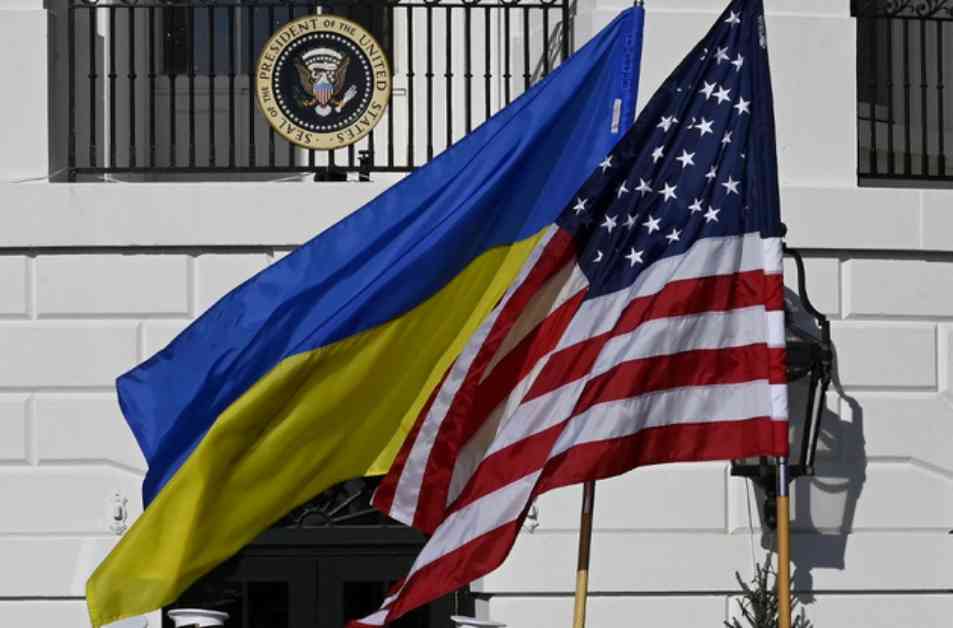This week, Ukrainians have continued to monitor the slow but steady advance of Russian troops in Donbas while actively discussing one of Trump’s latest orders: a 90-day suspension of USAID grant program pending a full audit of funds already spent. At the same time, the US has temporarily closed its doors to Ukrainian refugees. On social networks, there was some sympathy for people trying to enter or remain in the US as refugees, but the suspension of funding for USAID grants provoked almost wild enthusiasm in part of Ukrainian society.
Voices of Support and Opposition
Marian Zablotsky, a young but already well-known member of the Verkhovna Rada from the Servant of the People party, shared her perspective on the matter. She expressed her wholehearted support for the suspension of all USAID projects and their audit. Zablotsky highlighted that there are currently 112 active projects in Ukraine, amounting to $7 billion in funding annually. She raised concerns about the effectiveness of these projects, noting that many revolve around endless round tables and conferences, lacking meaningful impact. Zablotsky also pointed out that a significant portion of the funds ends up as net profit for private companies in the United States.
This stance garnered support from 50% of her followers, who initiated a campaign on social media showcasing mock grief for USAID grantees. On the other hand, the remaining 50% stood up for non-governmental organizations funded by the US Agency for International Development, emphasizing the potential ramifications of a funding halt pending the audit.
The Impact on Ukrainian Organizations
One of the organizations directly affected by the suspension of USAID grants is Ukraїner Media, a creative agency known for its compelling content about Ukraine and its attractions. Before the outbreak of full-scale war, the agency focused on producing videos and online content. However, following the recent conflict escalation, Ukraїner Media transitioned to war journalism, reporting from the front lines while maintaining its patriotic projects.
Bohdan Logvinenko, the founder of Ukraїner Media, shared his concerns about the agency’s heavy reliance on USAID funding. He highlighted that without a resolution, most of their products could disappear within months. Logvinenko also expressed fears that the void left by organizations dependent on American funding could be filled by alternative media sources, potentially altering the media landscape. As Ukraїner Media explores avenues for sustainable funding, Logvinenko remains skeptical about the resumption of grants halted by the Trump administration.
This shift in funding dynamics has prompted other heads of Ukrainian non-governmental organizations and independent media to seek alternative sources of support. Those critical of grant recipients have resorted to labeling them as “Sorosites,” a term with historical connotations linked to George Soros and his foundation. The term has evolved into a catch-all phrase for entities receiving foreign funding, sparking debates and divisions within Ukrainian society.
In the midst of these discussions, pro-Russian elements in Ukraine have seized the opportunity to amplify their anti-foreign grant sentiments. The suspension of USAID projects has galvanized these individuals, prompting a wave of social media activity and criticism directed towards organizations tied to external funding. As the narrative unfolds, the implications of funding cuts on media diversity and independence come into sharper focus.
The views expressed by various stakeholders underscore the complexity of the situation, revealing deep-rooted tensions and divergent opinions within Ukrainian society. As the debate surrounding USAID grants continues to evolve, the future of affected organizations hangs in the balance. The need for sustainable funding sources and strategic partnerships becomes increasingly crucial in navigating the shifting landscape of media and non-governmental initiatives in Ukraine.

















